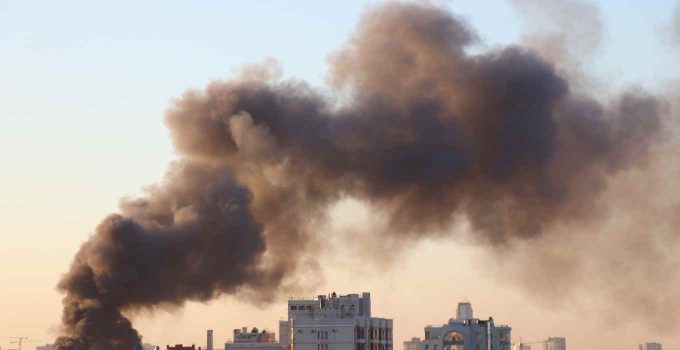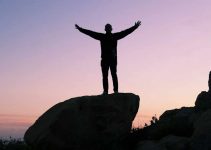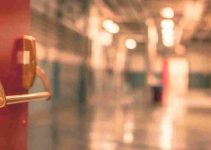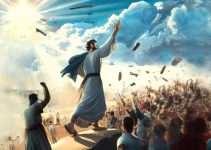Mr. Francis Mugoga lived to tell the bomb story of July 11,2010
The bombed scene at Ethiopian Village. Inset is Mugoga
A team of Americans debated where to watch the World Cup final from. In the end they settled for Ethiopian Village, where they found themselves at the centre of the bomb blast. Francis Mugoga, who was their host and guide, narrates how it all started and ended in Mulago and IHK hospitals.
On July 11, I took four American ladies (Joanne, Pam, Lori and Emily) to Bwaise Pentecostal Church where they joined two young American men (Kris and Thomas) to sing at the church.
We attended the 8:00am service and part of the 10:00am one after which we headed to town for lunch, relax and then look for a place where we would have dinner and watch the World Cup final.
From Bwaise, we headed to I love New York restaurant at Garden City for lunch. We then went to Centenary Park where we swam, had a massage, reflexology and relaxed. At around 5:00pm we were joined by Pastor Peter Mutabazi of Bwaise Pentecostal Church. We then debated where we would go for the final World Cup game. We had three places to choose from: UBC grounds, the Kyadondo Rugby Club and Ethiopian Village Restaurant.
The team wanted a place that would have an exciting crowd. At first, Ethiopian Village was eliminated because members did not think it would be a wild place, some members thought it would be a mild or moderate environment.
However, the team finally agreed to go to Ethiopian Village for both a nice meal and soccer. Pam, Sue, Peter, Lori and I had been to the place for dinner before and had watched one of the games from there. Three people drove in Peter’s (Toyota Caldina) vehicle while the rest rode in my van.
At Ethiopian Village, we were among the first to arrive, so I asked the waiters to set up tables for eleven people close to the giant screen. We were: Lori, Kris, Thomas, Pamela, Joanne (Mrs. K), and Emily, Ivan, Francis Okecho, Pastor Peter, Becky and I. The mood at the table was so jovial that the idea of death or bomb blast was the last thing on our minds. I remember telling the team how Nelson Mandela had lived a full life and accomplished a lot and how this could be his last huge event where he tirelessly worked to ensure that Africa hosts her first World Cup. Little did we know that the suspected suicide bomber was right in front of us and within minutes people would die and others lose their limbs.
At half time (00:45. 2), I remember hearing a big boom as if it were right in my face. I saw grey smoke around the place and felt like rain was falling on me – all over my body.
I tried to cover my face, but I kept feeling heat around me. I then remember as if pushing Lori, who was seated at my right-hand side, down. I tried to get my way out through the crowd that was behind me. I fell down a number of times as I stumbled over chairs, tables, slippery bottles and people. I kept stepping on stuff that felt like flesh (I found out later that it was actually human flesh). My hearing was gone, I could hardly hear in both ears. At first, I thought it was the projector that exploded but after a few minutes, I realised it was a bomb.
I managed to leave the scene within a few minutes. I then stopped some Ethiopian guy and asked him: “Am I okay?” He looked at me and nodded his head in the affirmative. But as if I was not satisfied with what he had told me. I ran back and, on my way, I saw a small mirror on the wall right by the sink. I stopped over and checked my face, hands, stomach, and legs. On realising that I was “fine,” I rushed back into the smoke to see if I could identify and rescue the people, I had come with.
I met Joanne whose face was covered in blood; she had difficulty walking. I asked her whether she was alright. “No, my arm and leg are broken, and I have lost my teeth. I can’t see Emily (her granddaughter),” she said. I held her left hand (her right hand was covered in blood, and you could see the naked flesh) and led her to the van whose roof and windscreen was covered with human flesh. I had to remove it using the car’s wipers before driving off.
I decided to carry Joanne and put her in the van. I went back and, on the way, I met Lori, who was crying and kept telling me that Emily was badly hurt. I told her to move to the van. I proceeded and a few metres away from Lori, I saw Emily screaming at the top of her voice while wallowing in a pool of blood with her right leg shattered. As I was figuring out how to carry her, I noticed two deep wounds: one on her thigh and the other on her hand.
I then grabbed an Ethiopian guy who helped me carry her to the van. It was a challenge for the Ethiopian guy and me to carry Emily into the van because she was covered in blood and had wounds all over her body. We finally figured out how to carry her and then managed to put her in one of the seats by the sliding door. The Ethiopian, with the help of his friend, went back and returned with three Ethiopians (two guys and one lady) who were seriously injured. One of the guys was badly injured and he could not say a word.
When I tried to go back to get more of my colleagues the place was a mess. It was filled with people trying to remove the dead and injured. I decided to first take the ones I had in the van then come back for the rest. This whole process of getting people into the van and moving up and down happened within 10 minutes of the blast. It was quite fast.
Lori was crying and moving around the van in confusion. After putting the people in the van, the Ethiopian guy lefty left leaving me with five seriously injured people plus (Lori a dazed survivor). I begged him to come and sit nect to Emily and hold her broken legs. The guy kept on moving away. I then grabbed his left hand and pulled him into the van and asked him to sit down and hold Emily’s legs and monitor the Ethiopian who was lying down in the van with his legs hanging out. I tried to close the sliding door but Emily’s feet and those of the other Ethiopian guy (who couldn’t speak), were still hanging outside. I decided to drive without fully closing the sliding door.
I headed to Mulago Hospital passing through Kabalagala, Nsambya, Clock Tower, Kampala Road, Wandegeya until I got there. Through all this Lori was in the passenger’s front seat on her knees holding Emily’s hands through the bars on the van. Emily was screaming: “I’m blind, I’m blind.” Lori had to hold both of her hands because when she released them, she would touch her injuries and scream in pain.
It was terrifying. Whenever Emily stopped screaming Lori would yell her name because she was afraid she was dead. Joanne was also quiet but Lori kept engaging her, so we are sure she was still alive. There was little traffic on the road except at Wandegeya where we were held at the traffic lights for about two minutes or so because of other vehicles ahead of us.
When we arrived at Mulago’s casualty ward, I realised I was the first person to take the first bomb blast victims to Mulago hospital that night. I met two people there: a guy dressed in green, and a lady wearing a white gown. I asked them: “Can someone come and help me out?” The two just looked at me as if I was a lunatic. I realised I was in Mulago hospital where nobody cares for you. What I had in mind finding nurses and doctors ready to swing into action whenever a vehicle arrived with a patient. I was shocked at what I went through. “Where is the stretcher?” I asked the two staff at the counter!
They pointed at some room, I went there and to my surprise, I found a dead body. I came back confused and I told them there was a body on the stretcher. The lady told me remove it. I ignored her and instead rushed towards the examination rooms. Between Room 5 and some other room, there was a stretcher laying there. I grabbed it and rushed to the van.
I lifted Emily’s head and hands while the Ethiopian guy, picked some shredded pieces of Emily’s top dress and prepared them to use them to carry Emily’s legs and place her onto the stretcher. I then rolled the stretcher up to Room 5 where I met some doctors treating some guys who had serious injuries (I guess they had an accident).
“Where do I put her?” I asked the doctors. One of them in glasses looked at me and said: “Do you see any vacant examination table?” I asked him what I had to do next since I had many other seriously injured people in the van. “Ask one of the patients on the bed to leave so you can put your patient on one of the examination beds,” he said.
I went straight to some guy who was lying on one of the beds with bandage around his face and mouth and a drip attached to his arm. I asked him to get off the bed. I helped him get off and I removed his drip from the stand, handed it over to him and he struggled to walk to the hallway with his mouth dripping with blood. I then pulled Emily’s stretcher close to the bed, I carefully held her upper side, put it on the bed and then moved her lower part onto the bed and covered her with a few remaining clothes.
I then rolled the stretcher and, on my way, to go and pick the rest, the thing just rolled in a different direction because I was panicking and an amateur at rolling it, I decided to rush to the van and just carry the rest into the examination rooms on my way I picked a pair of gloves at the counter. I went for Joanne first. I got scared for she was quiet; I thought she had passed out. But as I was taking her into Room 5, she asked me how Emily and the rest were doing. I told her they were “all fine except a few who had minor injuries.” I put her on one of the beds and went back for the three Ethiopians. We put the guy who was lying down in the van on one of the stretchers and as we were rolling him into the examination room, he was just quiet.
At first I thought he was in coma but when we reached the doorway the doctor came, looked at his stomach and eyes and said: “…he is dead.”
When I tried to put his hands together (because they were all broken), I realised his hands were very cold so I left him on the stretcher, went back for the Ethiopian lady and another guy. We carried them into the examination room. After this, I took the body of the Ethiopian guy into the van and later on asked someone to drop it in the mortuary.
While I was outside, I saw a Police Patrol pick-up pulling in with more than five people who were seriously injured. When I checked if any of my people in the group were there, I saw Kris whose right leg was wrapped with some clothes with his injured left eye. I grabbed him, but I needed someone to help me. The Police officers on the truck helped me carry Kris off the truck. I carried his shredded backpack and a camera.
I waited outside with Lori who was scared of being left alone. When we stood outside in the light, we realised each one of us had human flesh on our clothes and hair. The roof top of the van was covered with human flesh and blood. The inside was filled with flesh and blood. We then started removing flesh from our clothes. I then tried to find out who to call to find out about the other people.
While I was running up and down for airtime, I saw Lodovic, Sara, Alice and some church members. We tried to call the phones we had but they were all off. I called the American Embassy and told them I had six Americans and asked them to come at Mulago. Ms. Sahar Husain, the Vice Consul at the American Embassy came within 30 minutes. She helped me make calls to the relatives of the American team.
I then left the team that joined us and drove back to the scene to look for the four Ugandans and two Americans. While I was preparing to leave with Lodovic in the van, Ivan one of the victims who was on my team, came in and was helped by some good Samaritans into the hospital. He had wounds on his knee but they were not that serious.
At this point, police trucks, private vehicles, ambulances were flooding the casualty ward with bomb victims from Kabalagala and Kyadondo Rugby Club. The Police would pull up at the entrance of the causality ward, carry people from the trucks and drop them on the floor then drive back for more people. Crowds started coming to Mulago in search of their relatives and friends. More people were wailing as they received word that their people were dead.
Lori and I would go back and forth to where Emily, Kris and Joanne were; the hallway was full of people. We would pass dead bodies on our way to Room 5 and the other examination rooms. Bodies would be pulled from the hallway to some “waiting” room because there were not enough stretchers.
I went back to the Ethiopian Restaurant to check for the other people and any who needed help. On getting there I discovered that the Police would not allow people to go in. They had cordoned off the place. I went back to Namuwongo and drove to IHK.
While here, I charged my second phone and tried to find out what had happened to Peter, Becky, Francis, Pam and Thomas. I looked at the list of patients and discovered that Pam and Thomas were in the Intensive Care Unit. I did not see the names of the other three. I called the members of Pastor Peter’s church and asked them to try Nsambya while I still stayed at IHK to see if they could produce another list.
After about an hour of waiting, I decided to drive back to Mulago and find out if the people we left there had heard any news about the missing three. I was told by Sara that they had not seen any of the three nor heard about them. I then started working on preparations to move the three from Mulago hospital to International Hospital Kampala (IHK) where the other two were. The ambulance was called in and they were transferred to IHK.
Lodovic, Sara, Lori and I left Mulago at about 4:30am to go home for some rest before starting the search the next day. Lori and I were up by 7:00am to head to Mulago hospital. On our way to Mulago, we received a call that Becky’s body had been found lying at the city mortuary.
When we got to Mulago we found many people waiting at the mortuary. They had been asked to wait for the President to go there first. This took the whole morning and part of the afternoon. Lori and I drove to IHK to check on the five. Three were still in theatre but two were out. I managed to talk to them and after about two hours the other three were also out.
We then started working out an evacuation plan for all the five. I kept calling the team in Mulago to find out if they had seen anyone and at about 4:00pm I received a call that Pastor Peter’s body had been found in the mortuary. At IHK Pastor Franco Onaga, Mrs. Brenda Katongole and Brian all of Watoto Church joined us. Franco decided to handle the Mulago process of getting the two bodies from the mortuary and asked Brenda, Lori and I to work on the medical evacuation for the five – that was a great relief. At around 6:00pm, I received another call from Lodivic that the body of Francis Okecho had been found at the Mulago mortuary.
By 1:20am, we had evacuated all the five people. Joanne and Emily were flown to South Africa, while Pam, Thomas and Kris were flown to Nairobi.
The next day Tuesday, we went for the funeral service of Pastor Peter and Becky at Bwaise Pentecostal Church. Thereafter, we headed to Lodivic and Sara’s place at Kasubi where Francis Okecho’s body was awaiting transport to Bugiri for burial the next day.
After all of this episode, Lori and I kept talking about how God saved our lives. The talking has been one of our healing therapies. I am so grateful for Heidi Walberg and friends for taking care of us during the healing process. Beverly, thanks for being there for us.
My heart goes out to those who lost their beloved ones. Those who survived with broken bones and wounds, I wish you a quick recovery. And for the rest, I urge you to always be security-conscious at all times. By so doing, you could minimise the damage when a disaster strikes.




Thanks you for sharing this testimony. GOD is still healing and delivering and creating miracles. This is very inspiring and thank you for your love, kinds and patience to help your friends and strangers at a time they needed you the most. Please continue to share your testimony with others because there are people in the world who doubts GOD love and kindness for his children.
May God continue to heal and bless you and your friends.
Thanks for sharing. What a testimony. I will never forget this as long as I live. May God give you peace and strength and heal your friends.